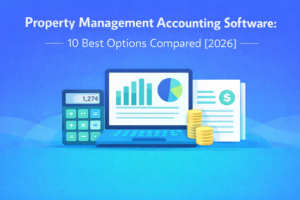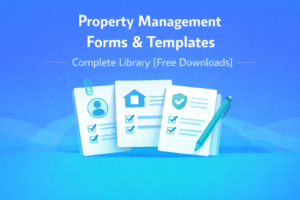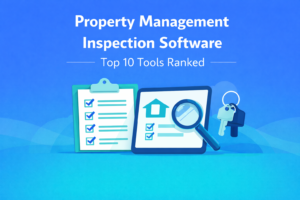
When moving further into the real estate management world, there’s an explicit difference between managing vast apartment complexes and handling the nuances of single family property management. The latter comes with its unique set of challenges and opportunities. By mastering the niche of single family property management, one can ensure higher profitability, stronger relationships with tenants, and a smoother operational flow.
1. Personalized Tenant Relations
In single family property management, the number of tenants is naturally limited. This in result also provides a unique opportunity to build strong, personalized relationships with each tenant. Know their names, their children’s names, and any specific needs or concerns they may have. This personal touch can lead to longer tenancy periods and better care of the property.
2. Regular Maintenance and Inspections
Since you’re dealing with individual properties, regular maintenance is important and is a major requirement. It’s easier to manage and maintain a single-family property, but it’s also easy to overlook small issues that can escalate over time. Establish a routine for regular inspections, and always address maintenance requests promptly and efficiently. This not only helps in tenant retention but also in maintaining the property’s value.
3. Streamlined Communication Channels
Given the intimate nature of single family property management, ensuring streamlined and open communication channels is crucial. Whether it’s through email, text, or a dedicated portal, make sure tenants can reach out with their concerns, and equally importantly, get a timely response.
4. Utilize Technology
The real estate world, even in the niche of single family property management, has seen a good influx of technology-driven solutions. From digital payment platforms to maintenance request apps, integrating technology can make management smoother and more efficient. For instance, using property management software can simplify different tasks like rent collection, lease renewals, and tenant screenings.
5. Know the Local Market
Understanding the local real estate market is important. This knowledge helps in setting competitive rent rates, understanding when it might be time to update or renovate the property, or predicting future market trends. Stay updated on local news, be involved in community events, and connect with other local property managers to exchange insights.
6. Detailed Lease Agreements
A well-structured and detailed lease agreement is the backbone of successful property management. Ensure that all terms are clearly outlined, from maintenance responsibilities to the protocol for handling disputes. Remember, clarity at the outset can prevent a multitude of problems down the road.
7. Professional Development
The world of property management is ever-evolving. To stay ahead, invest time in professional development. Attend seminars, enroll in courses, and stay updated with industry news. This not only enriches your expertise but also shows your commitment to excellence, a trait that prospective tenants and property owners value.
8. Financial Prudence
Effective single family property management is as much about maintaining a property as it is about maintaining its profitability. Implement a robust system for financial management. Keep a clear record of all transactions, routinely evaluate the property’s ROI, and always be on the lookout for ways to enhance profitability without compromising on service quality.
9. Respect Tenant Privacy
Single-family homes are often the chosen abode for those seeking privacy. As a property manager, it’s essential to respect this. While regular inspections are important, always schedule them well in advance and at a time convenient for the tenant.
10. Be Prepared for Vacancies
Unlike multifamily complexes, where a few vacancies might not be a financial strain, single-family property vacancies can be more impactful. Be prepared. Have a strategy for marketing the property, screening prospective tenants, and minimizing the turnaround time.
11. Adaptability in Strategy
The overall landscape of real estate and property management is not static; it’s influenced by various factors including economic trends, societal shifts, and legislative changes. Therefore, adaptability should be a cornerstone in your approach to single family property management. Monitor market conditions and be ready to pivot your strategies, whether it’s altering your marketing techniques to attract tenants or adjusting rent in alignment with the market. An adaptable mindset also applies to the evolving needs of tenants as their life circumstances change. Being flexible in negotiations around lease terms or property modifications can go a long way in maintaining a positive landlord-tenant relationship.
12. Sustainability Practices
As environmental concerns continue to influence every industry, integrating sustainability into your property management practices can not only reduce ecological footprints but also add a competitive edge. Consider implementing energy-efficient appliances, sustainable waste management systems, or offering incentives for tenants who participate in recycling programs. Additionally, landscaping choices can also contribute to sustainability, for instance, by opting for native plants or installing rainwater harvesting systems. These green practices can not only attract eco-conscious tenants but also result in long-term cost savings and potentially increase the property’s market value.
In Conclusion
The intricacies of single family property management demand a strategic yet flexible approach, balancing professional acumen with a personal touch. By staying adaptable to the ever-changing market and societal trends, including the growing emphasis on sustainability, property managers can ensure their strategies are resilient and contemporary. This field goes beyond mere property upkeep; it’s about creating homes where tenants feel valued and understood. Embracing both the tangible and intangible facets of this niche will set you apart as a property manager who’s not just managing properties but is also contributing to a higher quality of life and a healthier environment. As you continue to grow and adapt, you’ll find that your success mirrors the stability and happiness of the communities you serve.
Table of Contents
Stay Updated
Subscribe to get the latest news, industry trends, blog posts, and updates...




